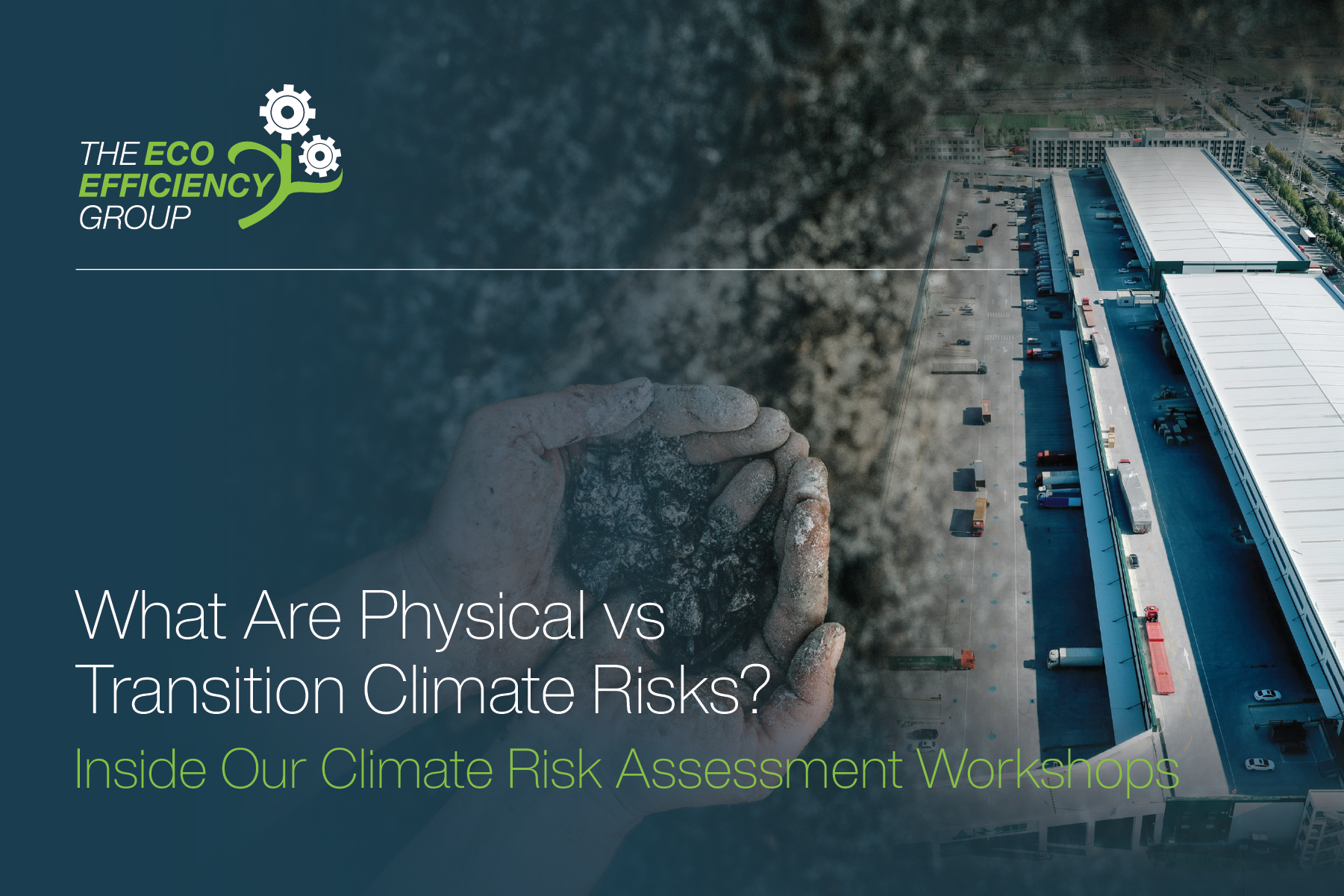2024 delivered a clear reminder of Australia’s changing climate reality. Queensland recorded its warmest year on record, with temperatures 1.63°C above the long-term average. Nationally, Australia experienced its second-warmest year on record.
These are not just statistics; they represent increasing climate hazards that directly impact business operations, supply chains and financial performance.
Australian businesses are no strangers to weather-related disruptions from cyclones, floods and heatwaves. And with Mandatory Climate-Related Financial Disclosures (MCRFD) now in effect, the focus shifts to future scenarios.
Businesses need to assess how climate hazards could intensify and report on potential impacts to their cash flow and access to capital.
Is your business prepared to assess and manage climate risks before they become critical?
Understanding the Two Types of Climate Risk
When we work with businesses on climate risk assessment, the first step is understanding that climate-related risks fall into two main categories: physical risks and transition risks.
Physical Risks: When Climate Hazards Hit Your Business
Physical risks stem from the climate hazards themselves – fires, floods, storms, droughts and extreme temperatures. They present in two main ways:
Acute risks are event-driven: the cyclone that shuts down your facility or the flooding event that disrupts your supply chain.
Chronic risks develop from longer-term climate patterns: decreased rainfall impacting water availability or sea-level rise threatening coastal operations.
The financial impacts of physical risks are typically more immediate and direct, such as:
- Reduced revenue from decreased production capacity and/or stranded assets
- Increased insurance premiums
- Higher costs and lost productivity from workforce disruptions
Transition Risks: The Cost of Change
Transition risks arise from society’s response to physical climate risks: new technologies, legal policies, government regulations and market shifts aimed at reducing emissions and adapting to climate change.
The financial impacts of transition risks compound across your operations over time, such as:
- Higher technology investment costs
- New operational practice implementation costs
- Rising greenhouse gas emissions pricing
- Revenue mix uncertainty as markets shift to sustainable options
The opportunity lies in getting ahead of these risks by proactively addressing them.
How We Guide Businesses Through Climate Risk Assessment
In our climate risk assessment workshops, we take businesses through a structured three-step process to understand their climate risks and opportunities and their meet MCRFD requirements.
Workshop 1: Introduction to Climate Risk Assessments
We start to identify how climate hazards could impact your specific assets, people, operations and supply chain.
Workshop 2: Conduct the Risk Assessment
We assess current and future climate scenarios to pinpoint your climate risk exposure and the potential financial impacts to your business.
Workshop 3: Review and Confirm Disclosure Statements
We develop compliant disclosure statements that double as strategic planning tools for your business.

Moving from Assessment to Action
Climate risk assessment is about building a more resilient, future-ready business. Whether you’re dealing with immediate physical threats or preparing for transition challenges, a structured assessment process turns climate uncertainty into clear business priorities.
How exposed is your business to climate risk?
What would a supply chain disruption cost your business?
Do you have the insights needed to meet mandatory disclosure requirements?
Our climate risk assessment workshops provide the framework and expertise to navigate MCRFD requirements while building business resilience in the face of climate risk – organise a call with our team to get the answers your business needs.
References:
Australian Bureau of Meteorology. (2024). State of the Climate 2024. http://www.bom.gov.au/state-of-the-climate/
Australian Securities and Investments Commission. (2024, July 11). ASIC urges businesses to prepare for mandatory climate reporting [Media release 24-205MR]. https://www.asic.gov.au/about-asic/news-centre/find-a-media-release/2024-releases/24-205mr-asic-urges-businesses-to-prepare-for-mandatory-climate-reporting/

